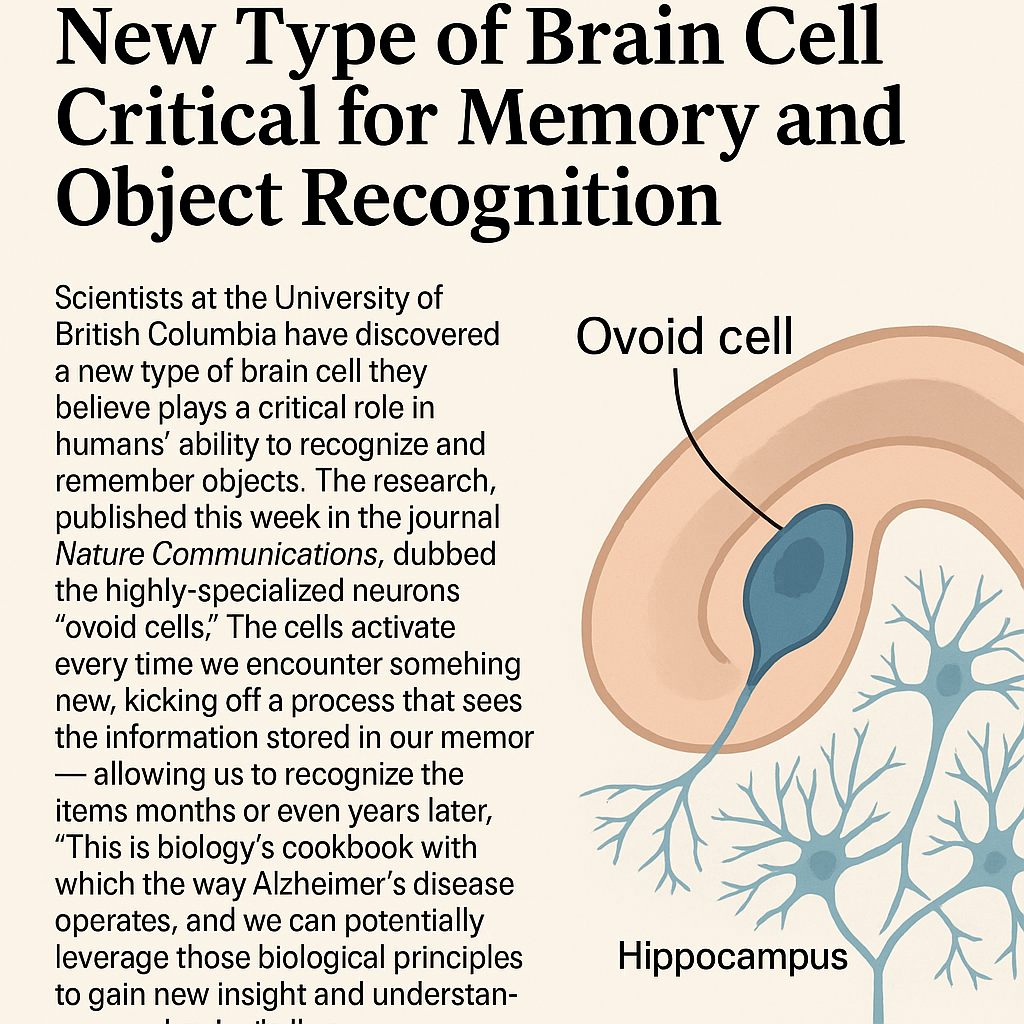Scientists at the University of British Columbia (UBC) have made a groundbreaking discovery of a new type of brain cell that plays a key role in humans’ ability to recognize and remember objects. The findings, published this week in Nature Communications, could offer new insights into the mechanisms of memory and diseases like Alzheimer’s.
The newly discovered neurons, named “ovoid cells,” are highly specialized and activate every time we encounter something new. This activation triggers a process that helps store information in our memory, allowing us to recognize objects months or even years later.
Study lead author Adrienne Kinman, a PhD student at UBC, uncovered the unique properties of these cells while analyzing a sample from a mouse brain. “When a mouse sees an object for the first time, these cells turn on and stay on for a long period of time,” Kinman said. “However, if we wait a day and show the animal that same object, these cells no longer respond, which is really wild.”
The research focused on the hippocampus, the part of the brain that plays a critical role in memory formation. Ovoid cells are found in this area in relatively small numbers, but their function appears essential for forming and retaining memories of novel objects.
Dr. Cembrowski, another researcher involved in the study, emphasized the significance of these findings. “This discovery is biology’s cookbook, showing us how the nervous system works,” Cembrowski explained. “Understanding these biological principles could provide us with new insights into the way Alzheimer’s disease operates. We might be able to leverage these principles for developing better treatments.”
The discovery is particularly promising in the context of Alzheimer’s disease, which is characterized by difficulties in recognizing objects and forming new memories. Researchers believe that by understanding how ovoid cells contribute to memory formation, we could unlock new ways of targeting memory-related disorders.
Although ovoid cells are found in small numbers, their impact on the memory process could be substantial. Researchers at UBC plan to continue exploring how these cells function in both healthy and diseased brains to further develop potential therapies for memory-related conditions.



0 Comments